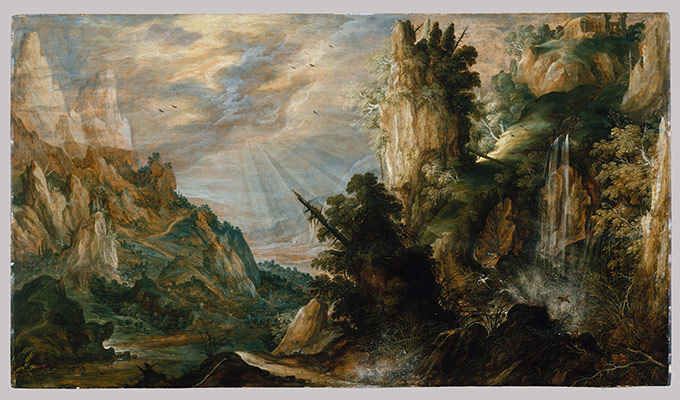
Welcome to August, and a look at 7 more contemporary poets of India writing in English.
Rohan Chhetri writes poetry which is both tender and stiff; his predominant phrase: “Grandfather died.”
Poetry, in attempting to be more than prose or speech, will take on a certain severity of address, which can seem unkind, even as it speaks kindly. Old memories, sentimental and sad, stand up in the soul of the young poet, who might first be attempting poems in college. The drama of grandparents beside parents ushers in the historical depth which the young poet needs. My poetry needs weight, the ambitious youth thinks—dying, revolutionary grandparents certainly add gravity.
The old man loved his sleep,
my father remarked to the visitors
a week after Grandfather died.
I was twelve
& the cruel metaphor wasn’t lost on me.
Is how “His Charred Hands Hold the Blueprint Among the Ashes” begins.
From “Restoration Elegy:”
You hear the river back home has changed its course,
flooding through the living rooms of your town,
an angry murk roiling with a singular desire to bring
to surface every lost map of your grandfather’s revolution.
I’ll quote “History of Justice” in full. It shows Chhetri at his best—a poet who doesn’t exist in his own poetry, the previous generation haunting its way in.
Some kids from the neighbourhood are bursting firecrackers
by the side of our compound wall. Grandmother is
screaming at them. Mother smiles knowing
they won’t listen. Grandfather once stayed up
late in the night at the window of the first floor
waiting for the drunk who pissed on our wall
every night, so he could slosh a good whole bucket
of cold water over his head in the frosty winter night.
He’s been dead since long, our grandfather.
But grandmother hasn’t forgotten the battered face
of the man who was tied to a post outside the house
for having beaten his wife to a pulp. And grandfather
lunging his fists on the poor man’s face. Grandmother
by the window thinking if she had married a monster.
Most of all, the face of her young husband during the time
of the revolution when she went to see him in the lockup,
where he was hung naked upside down for two days,
with mud shoved in his mouth by the Bengali Inspector who
kept saying, Feed him the land, that’s what they are fighting for.
*
Sampurna Chattarji is one of those poets who makes a lot of claims for poetry—how it is not mechanical like the rhetoric of war, but private and inward and full of hope; but she often writes poems which are extremely objective and mechanical, like those school exercises where you take an object and write on it—she seems to need a subject, before she gets started; she is not one of those lyric romantic poets who spontaneously combusts. She overstates objects, understates emotion, and writes indirectly in the way difficult poets often do, when not shocking us, occasionally, with the gruesome or the disgusting; when peeping into her work through a certain lens we find a poet as intense and intelligent as any poet writing in English today.
Object lesson: two
I ride my bicycle to ride my bicycle. –Zen proverb
I park you on my palm
testing you for posture (and pedals—
they really work). Velocipede of wire,
your red and yellow symmetries make
centuries of tinkering seem trivial. You
are a miniature of perfection, you scorn
your previous selves, their names creak
ing like their movements. You do not
see the poetry of Celerive and
Draissine, the rough humour
of the boneshaker
the hobbyhorse the
highwheeler trundling down towards
you, so neat in your sprocket and chain.
You do not care that
a French count or a German baron
a Scottish blacksmith a Parisian carriage
maker and a stolid Englishman saw you
in their dreams. And as for being (maybe)
a doodle in a certain Italian’s notebook, the
name da Vinci doesn’t ring a bell. Your
past is monumentally incidental. You
are all here, now, parked on my palm,
content with yourself
as a tiny replica of you.
**
Michael Creighton has an easy lyric style, which nonetheless carries interesting things in it, a love poet who understands mystery (awe) playing against insouciance is a great formula for love experience in the vehicle of song. The romantic, in a rough and tumble, innocent, adventurous sort of way, makes us fall in love with a city, even as the beloved is still central, but cleverly hidden.
New Delhi Love Song
Smog and dust mix with the air in New Delhi.
I buy jasmine for her hair in New Delhi.
People come from everywhere to this city;
all are welcomed with a stare in New Delhi.
The finest things in life don’t come without danger.
Eat the street food , if you dare, in New Delhi.
We push in line and fight all day for each rupee.
Can you remember what is fair in New Delhi?
There is nothing you can’t find in our markets.
Socks and dreams sell by the pair in New Delhi.
So many families on the street through the winter;
Sometimes good men forget to care in New Delhi.
My friends ask, Michael, why’d you leave your own country?
I found jasmine for her here, in New Delhi.
***
Ranjani Murali is a poet who, as we would expect in the era of the MFA, and the subsidized aesthetic, is drawn to the project of moral import. A project will sometimes drown the poetry.
In her cinema project, she has raised the bar so high—critique the impact of certain kinds of cinema on a certain kind of educated person—that her poetry fights to survive, as her art is called on to describe a virtual universe of cheap, visual effects—and hers and a crude audience’s various reactions to them.
Her poetry is trapped in a university thesis. We don’t know what kind of poet she could be, because the project she has chosen has made her a different one.
There is never just “poetry.”
“Poetry” is always attempting to do something which the poet has told it to do. And what Murali’s poetry is doing is super-human. Poetry may do many things, but it cannot do this. Or can it? She is describing cinema which is fake—but the lesson of the dyer’s hand may do her in.
Cinema is big in India, as it is in the United States, and we have seen poets in the U.S. who are fans, and anxious to praise actors and film genres in their poetry. “Project poetry” of all types tends to be dubious to begin with. Murali has a bigger challenge, for with acrobatic, parenthetical musings and suppositions, she strives to convince us her subject is lowbrow and harmful—which if, true, is all the more pointless for poetry aimed at an educated audience to do the work it needs to do to point this out, and, if not true, exactly as pointless, just the same.
To be clear. Ranjani Murali is brilliant. But her obvious talent tugs against the whole project-mentality.
The following is a magnificent poem, even as the poet swims upstream, informing us (“staggering height of two feet”) how ridiculous and melodramatic her subject is—but there is a wonderful richness to it all, and “waylaying of fiction by our own personal fictions” is really something to think about, and the poem manages to invoke a tender feeling at the end:
SINGING CANCER: ARS FILM-POETICA
Anand jumps to his death from the staggering height of two feet,
where leukemia has been waiting, on a tape (played at this final scene)
for the audience to absorb the gravity of his absence,
his khadi kurtas condemned to eternal hanging from hooks the size
of tennis balls. Such emptiness adorns this pallid death-scene that
if a small child were to squeeze into this room, tearing apart the cloth
projector-screen, no one would turn to smile at its cherubic face or its tender
pink fingernails. Anand’s friend and his wife are in a paroxysm of rage, wringing
curtains and bedsheet corners but the fall has passed and the voice
on the tape is affectionately teasing them, calling them into a world
of bright poppies and painlessness, a rhythmic clicking (not hushing)
replacing the voice after the signoff—a series of muffled hammer-strikes.
Then, as if on cue, the cast starts sobbing, occasional sniffs spaced out—half beats
of sorrow conducted by the trembling tape player. The bewildered child of our
imagining is still standing in this frame, tugging at the dead man’s hung kurta,
and this waylaying of fiction by our own personal fictions is thus complete.
This child of matinee-hooting and mid-city commutes,
a threshold being, latches on to us, suspending our passive armrest-tapping,
churning our stomachs at the thought of a cancer guttering up
our veins, turning our bodies into a reflection of every instance
of flinching or fraying in the movie-reel, our minds a freeze frame suspended
between seeing and being seen.
****
Minal Hajratwala has a delicate wit and sense of precision which memorable poets invariably possess. In the following poem, Hajratwala feels neither embarrassed nor hamstrung by the unicorn theme, embracing it with great results.
Operation Unicorn: Field Report
The unicorns are a technology
we cannot yet approximate.
Each silv’ry filament’s
worth a trillion fiber optics—
sensitive, intelligent, dense
with data, light as pi.
The natives name them rainbow-made
rapid-streaming over four-dimensional landscapes
wet with dawn. We observe
dappled midnight & moonlight,
sterling-indigo ripples
of energy, some silk
our instruments cannot yet measure.
They say from time to time a virgin
finds a gemstone tooth, a hoof of sapphire.
Upon inquiry, however, no such objects could be produced.
One operative following a lead
has disappeared, sending
two chaste missives in six months
scratched in bark:
1. The years are arbitrary scrawls
2. I have conquered the subterranean stairs
*****
Ranjit Hoskote has such talent for metaphor, such a hoard of poetic gifts, that it almost defeats him. If I were his opponent in chess, I certainly would have no chance; but the poet is the chess player who plays himself. Often I have seen a metaphor in a poem so marvelous that it stops the poem so that it cannot go on, but the poem does, and the poem trails off, almost helplessly, or with even better metaphors, the wealth of which makes the problem of the poem worse. In the following poem, we see Hoskote attain the apparent peak with “if the day should turn upon its hinges, letting light colonise this empire of jars” and yet he still manages to climb:
Effects of Distance
for Nancy
Call it providence if the day should turn
upon its hinges, letting light colonise
this empire of jars and shutters, this room.
A telegram on the rack spells hands that burn
because you did not reply, did not realise
that some words are too proud to remind you they came.
Blue is the colour of air letters, of conquerors’ eyes.
Blue, leaking from your pen, triggers this enterprise.
Never journey far from me; and, if you must,
find towpaths, trails; follow the portents fugitives trust
to guide them out and back. And at some fork,
pause; and climbing in twilight though you may be,
somewhere, address this heart’s unease,
this heart’s unanswered wilderness.
******
Uttaran Das Gupta likes the wide historical view, and it keeps his poems on the sober path; they partake of life, but don’t get overly excited. Perspective is all. We see this in the following poem:
Walk, After Lunch
A deer park, a duck lake, a fort—
“It’s colder here, isn’t it?”—
“Yes; we’ll walk fast, ok?”
Distress clouds your eyes:
“You should’ve got your coat.”
“It was sunny when we came out.”
“Still!”
(Ma chère, what’s gone through the sieve…
what’s stuck in the net, we receive
like cactus flowers in a drought.)
“It’s still October,” says our friend.
She’ll be only too glad to take an auto.
We press on to the lake.
The fort was restored to defend
the water from the Mongol hordes.
These Khilji-Tughlaq ruins now boast
of peacocks, lovers and ghosts;
no one remembers Taimur’s sword.
The dusk is smoggy, the village is lit-up.
We hear jazz, Sufi,
and debate on rum or coffee.
“To not drink would be sacrilege!”
We each order one-and-a-half
measures of rum: the cold retreats.
Good I didn’t get the coat, it cheats
me of the warmth of friends.
—“Or rum?”
—And we laugh.
*******
And so goodbye to August, and thanks once again to Linda Ashok. After making this project my own, I am convinced Indian poetry in English is just as good as poetry from England, America, etc. Please support Indian poetry.
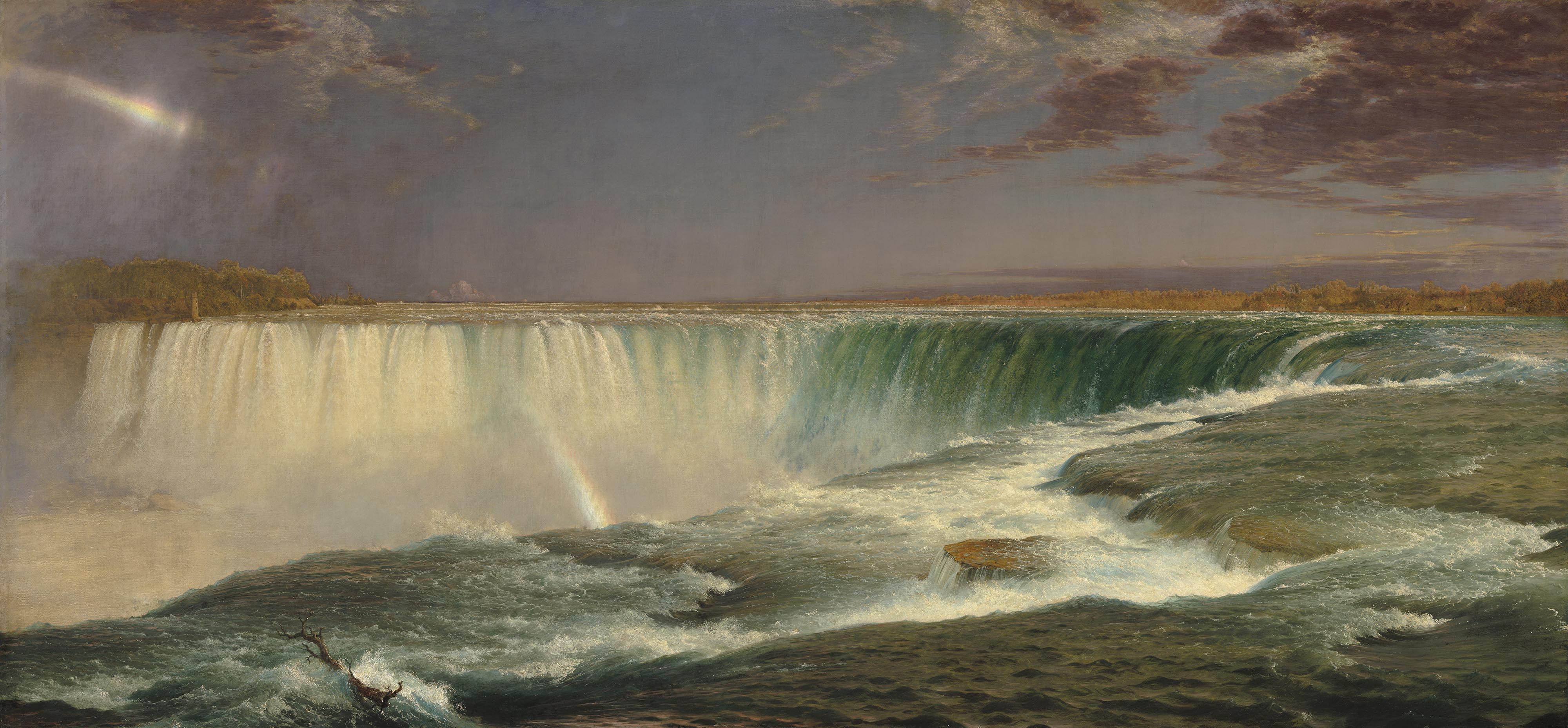




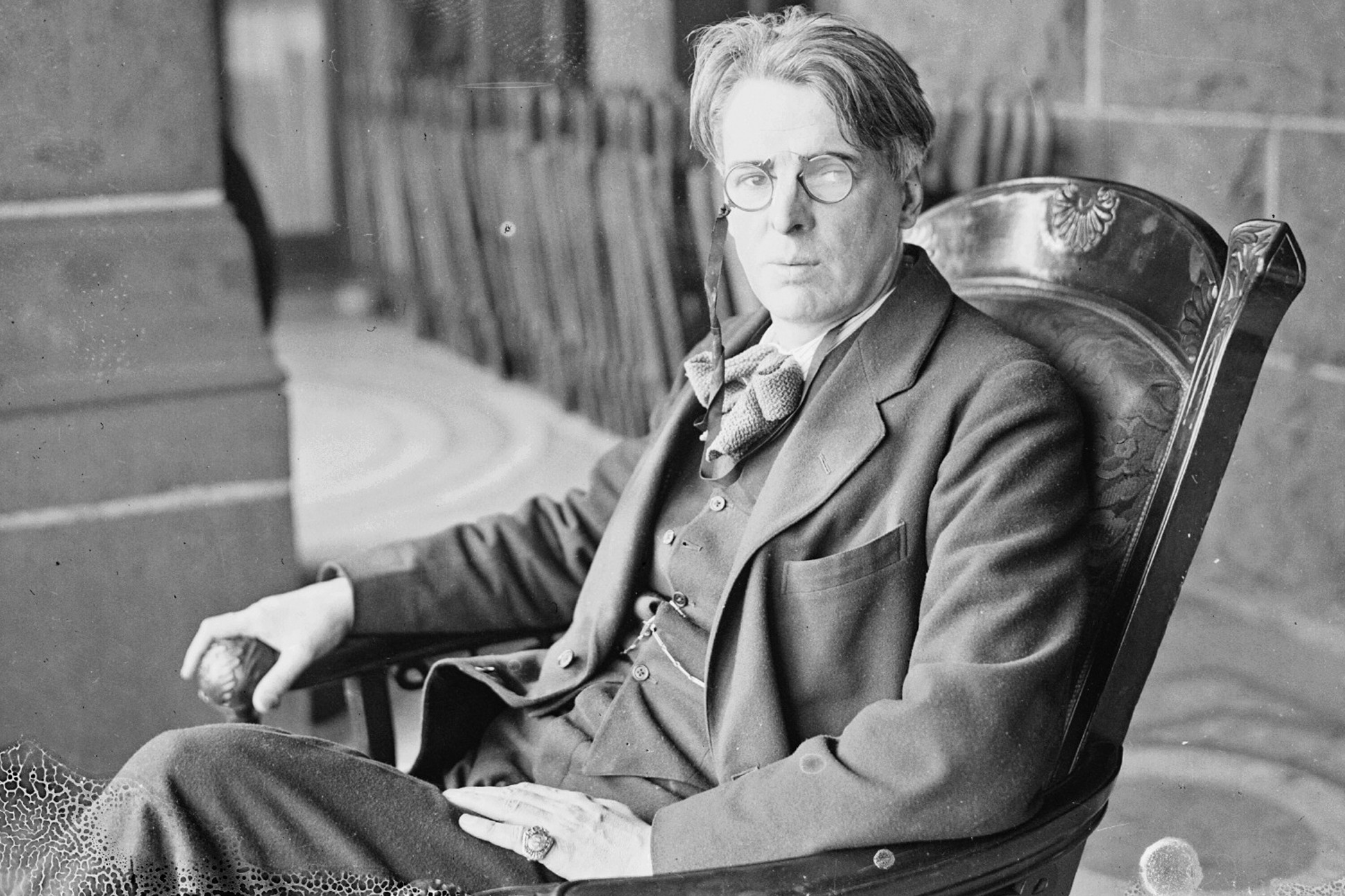




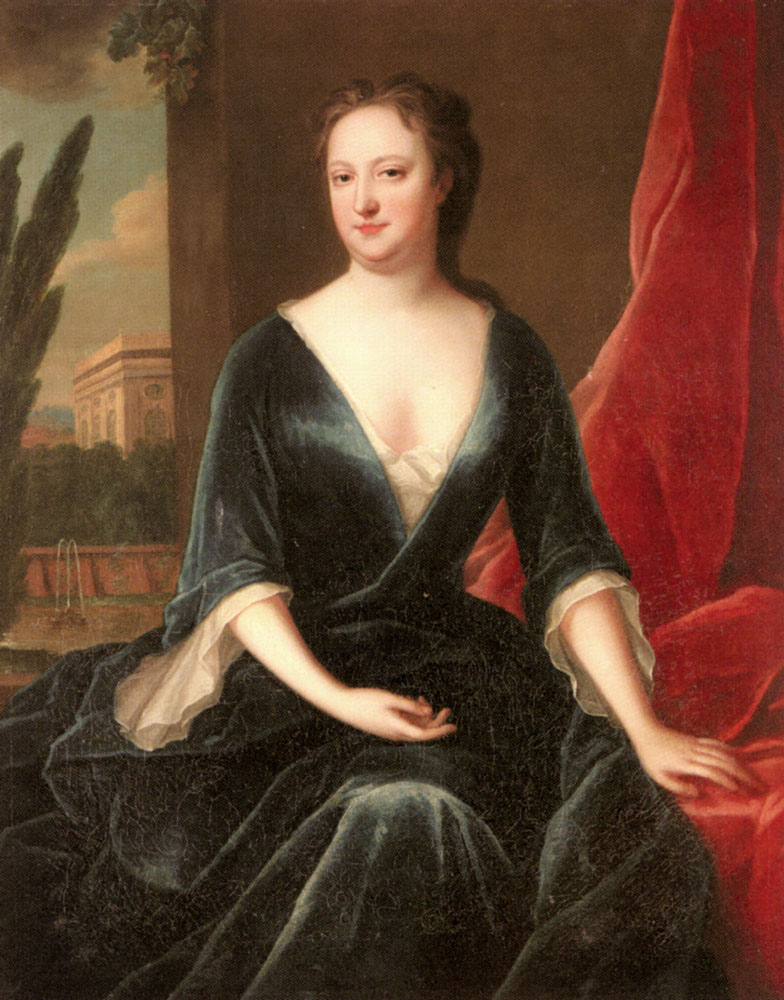
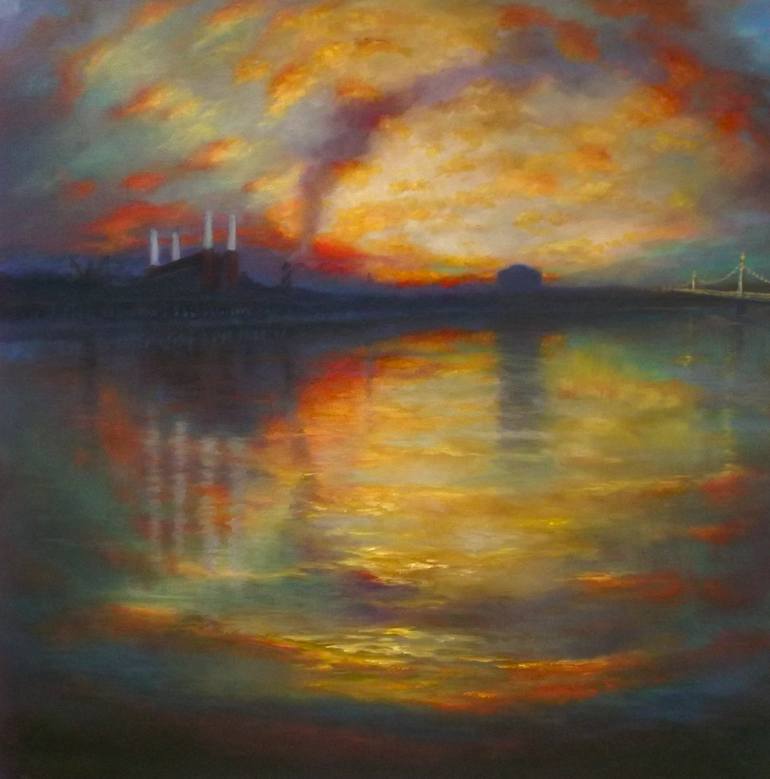

/https://public-media.smithsonianmag.com/filer/e9/f9/e9f99903-e7d1-49e5-844f-54c6aa8f67e9/anton_domenico_gabbiani_-_portrait_of_three_musicians_of_the_medici_court_-_wga08360.jpg)
